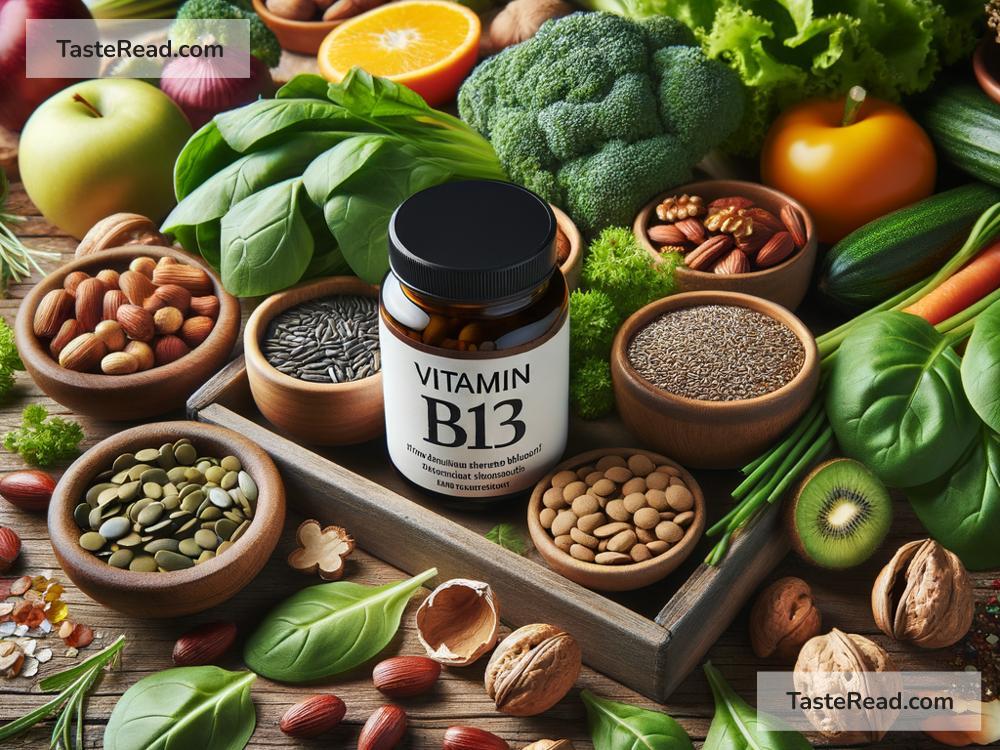The Role of Vitamin B13 in Metabolic Health
When we talk about vitamins, most people think of classic ones like Vitamin C for immunity or Vitamin D for strong bones. But did you know there’s a lesser-known nutrient called Vitamin B13? Though not as famous as other vitamins, Vitamin B13 plays an important role in your body, offering benefits linked to your metabolic health. Let’s explore this fascinating nutrient and learn about how it supports your body.
What Is Vitamin B13?
Vitamin B13, also called orotic acid, is a compound that is classified as part of the B-vitamin family. While research on it is still ongoing, scientists have found that it has some unique properties related to energy production, cellular health, and DNA building.
Unlike other vitamins, B13 is not considered an “essential vitamin” because the human body can produce it on its own. However, it is still important to understand its benefits, as it plays supportive roles in several key biological processes.
How Does Vitamin B13 Work?
Vitamin B13 supports your metabolism—the process your body uses to convert food into energy. Specifically, it helps with the production of nucleotides, which are the building blocks of DNA and RNA. Without these tiny molecules, your cells couldn’t divide, grow, or repair themselves properly.
On top of that, B13 aids in the utilization of energy, helping your body break down carbohydrates and fats more efficiently. This means that it helps you get energy from the foods you eat, keeping your body functioning well throughout the day.
Benefits of Vitamin B13 for Metabolic Health
Maintaining a healthy metabolism is vital for your overall well-being. Here are some ways Vitamin B13 contributes to metabolic health:
1. Supports Heart Health
Vitamin B13 has shown potential in promoting heart health. Some studies suggest that orotic acid can help improve the way your heart muscle works, making it more efficient. It may also protect against certain types of stress on the heart.
2. Helps with Fat Metabolism
If you’ve ever wondered how your body burns fat, it involves a complex series of processes. Vitamin B13 plays a role by enabling the enzymes that break down fat molecules. This could be helpful for people who want to maintain a healthy weight or optimize their metabolic function.
3. Aids in Energy Production
Feeling tired all the time? Your body might not be producing energy efficiently. Since Vitamin B13 helps your cells create nucleotides, it has an indirect impact on your energy levels by keeping your cells in good working condition.
4. Supports Healthy Liver Function
The liver is a major hub for metabolic activities in your body, including breaking down food, filtering toxins, and storing energy. Studies suggest that Vitamin B13 could help protect the liver from damage caused by toxins and improve its overall function.
5. Potential Role in Cellular Repair
Cells in your body constantly experience wear and tear. Vitamin B13 contributes to the repair process by assisting in the creation of important cellular components like DNA and RNA. This helps your body recover from injuries more quickly and stay healthy.
Foods Rich in Vitamin B13
The good news is that you don’t necessarily need to look for supplements to get Vitamin B13. Although the body can produce it, you can boost your levels through certain foods. Some sources of B13 include:
- Dairy products like milk, cheese, and yogurt
- Leafy green vegetables
- Meat, especially liver
- Whole grains
- Beets
Eating a balanced diet that includes these foods can help ensure your body has the nutrients it needs, including Vitamin B13.
Is Vitamin B13 Deficiency a Concern?
Although Vitamin B13 is not officially classified as an essential nutrient, some people might benefit from ensuring they get enough of it. For instance, individuals with metabolic disorders or liver problems might need higher levels of B13 to support their health.
There is no established daily requirement for Vitamin B13, and deficiencies are rare since your body can make it. However, people with poor diets, chronic illnesses, or specific genetic conditions may have lower levels and could benefit from dietary sources or supplements.
Are There Risks to Taking Too Much?
Most research suggests that Vitamin B13 has low toxicity, meaning it’s unlikely to harm you even in larger amounts. However, moderation is always key with any vitamin or nutrient. If you’re considering supplements, it’s a good idea to speak to a healthcare provider first to determine your specific needs.
The Future of Vitamin B13 Research
Although Vitamin B13 is less studied than other vitamins, scientists are continuing to investigate its long-term effects on metabolic health. Researchers are hopeful that this nutrient could potentially be used to treat certain conditions, including liver diseases and heart problems. As more studies emerge, we may learn even more exciting ways that Vitamin B13 benefits our bodies.
Final Thoughts
Vitamin B13 might not be a household name, but it’s worth knowing about. By supporting critical metabolic functions like energy production, fat breakdown, and cellular repair, this vitamin plays an important role in your overall health. While it’s not considered “essential,” getting it from foods like dairy, meat, and leafy greens can help optimize your metabolic health.
As always, a balanced diet and healthy lifestyle are the foundations for staying energetic and strong—and Vitamin B13 is just one of many players that helps you achieve that. If you’re curious about this nutrient, consider speaking to a nutrition expert or doctor. Who knows—it could be the hidden key to better health that you’ve been searching for!


